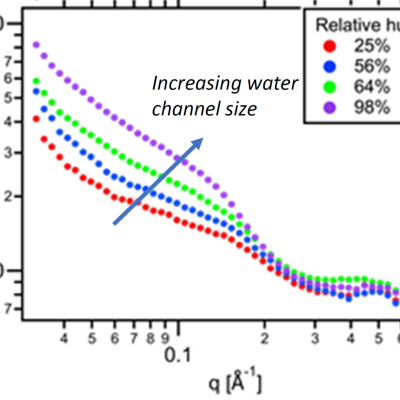LLNL researchers have developed a method to enhance the performance of polyelectrolyte membranes by using a humidity-controlled crosslinking process which can be applied to precisely adjust the water channels of the membrane.
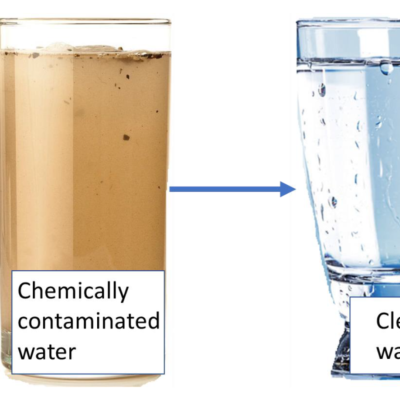
LLNL researchers have developed a method for enhancing the photocatalytic degradation of organic contaminants in water through the incorporation of patterned plasmonic metal nanostructures with TiO2 photocatalysts. The multi-step process to incorporate UV plasmonic metal nanostructures with the photocatalyst can be briefly summarized below:
• Nanosphere lithography…
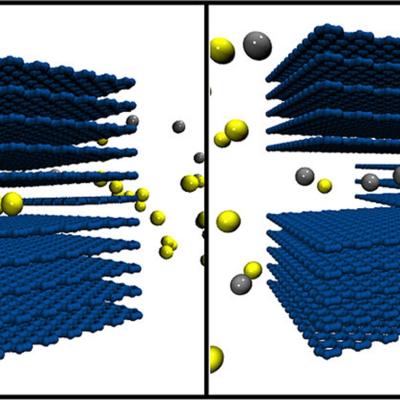
LLNL researchers have developed a novel technique of flow-through electrode capacitive deioinization (FTE-CDI) which can be tailored for selective ion removal from water. It uses porous carbon aerogel materials as capacitive deionization (CDI) electrodes to selectively remove scale forming divalent ions (e.g., magnesium, calcium) from "hard" waters.
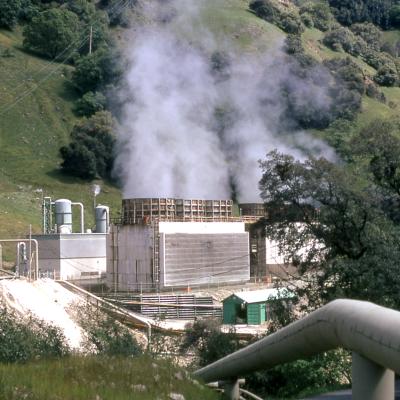
LLNL has a patented process to produce colloidal silica directly from geothermal fluids. Livermore’s process uses membranes to produce a mono-dispense slurry of colloidal silica particles for which there are several applications. LLNL has demonstrated that colloidal silica solutions that result from extraction of silica from geothermal fluids undergo a transition to a solid gel over a range of…
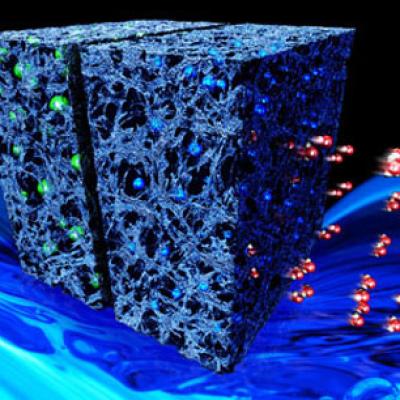
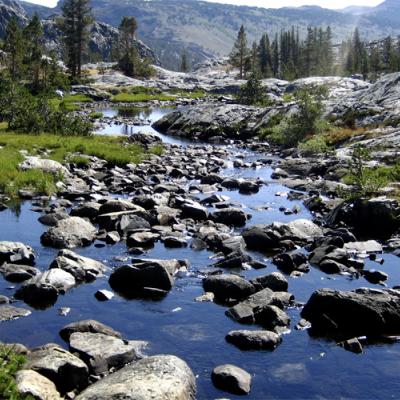
LLNL has developed a noble gas mass spectrometry facility that houses a state-of-the-art water-gas separation manifold and mass spectrometry system designed specifically for high throughput of groundwater samples. The fully automated, computer-controlled manifold system allows analysis of the full suite of noble gases (3He/4He, He, Ne, Ar, Kr, and Xe concentrations), along with low level…


